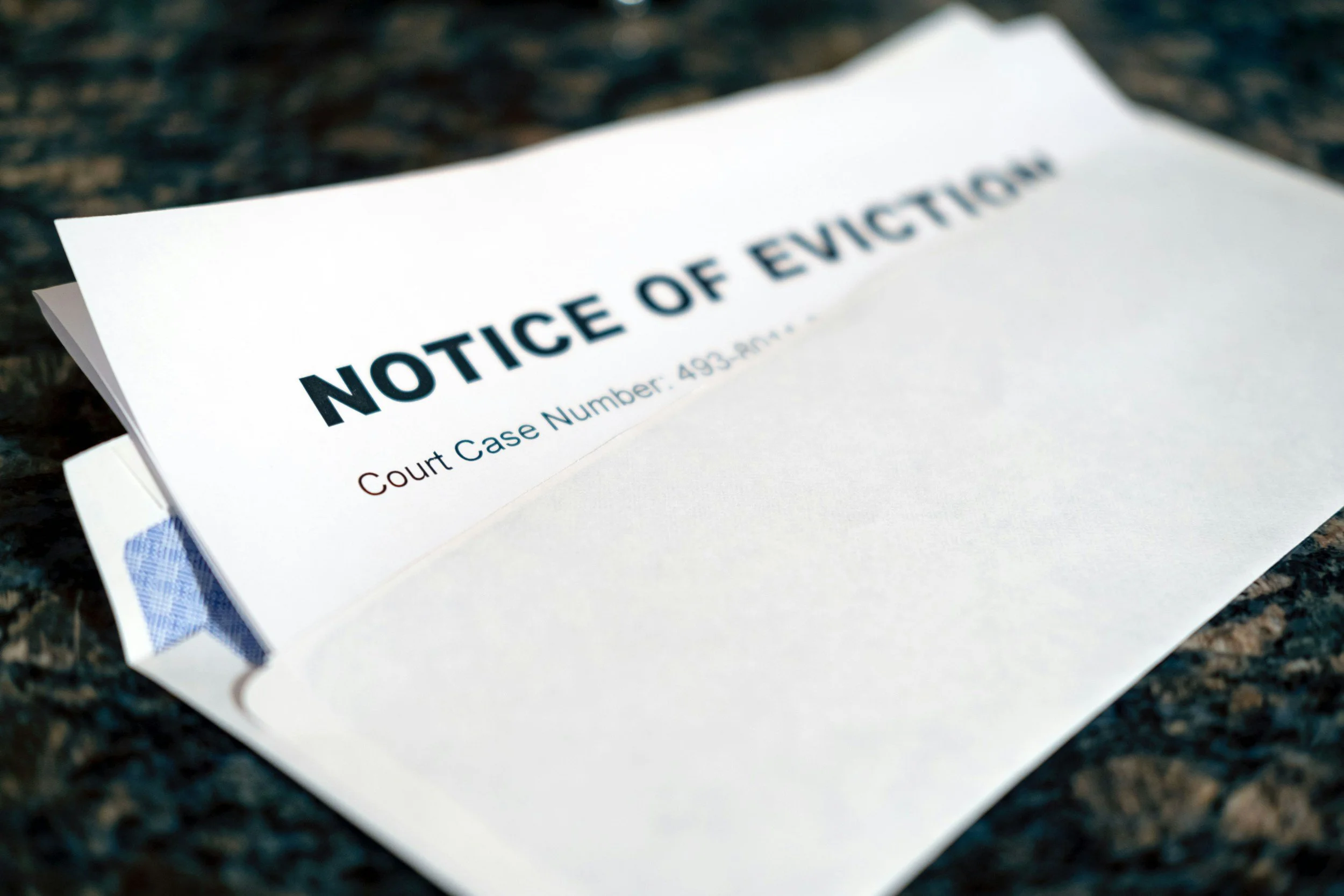How To Evict Tenants in Chicago
Evicting a tenant in Chicago can be a complex process. It requires a thorough understanding of local laws and regulations.
The Chicago Residential Landlord and Tenant Ordinance (RLTO) governs this process. It's crucial for landlords to familiarize themselves with this ordinance.
Before initiating an eviction, there are several steps to take. These include serving the required notices and documenting all interactions with the tenant.
This guide will walk you through the eviction process in Chicago. It will cover everything from establishing legal grounds for eviction to enforcing the eviction order.
We'll also discuss selling your rental property with tenants in it. This includes lease termination considerations and how to avoid common pitfalls.
Whether you're a landlord, property manager, or real estate investor, this guide will provide valuable insights. It will help you navigate the eviction process in Chicago effectively and legally.
Understanding Chicago Eviction Laws
Chicago eviction laws are primarily governed by the RLTO. This ordinance provides protections for both landlords and tenants.
It outlines the legal grounds for eviction, the required notice periods, and the eviction process. For instance, the RLTO specifies the different types of notices required depending on the reason for eviction, such as a 5-day notice for non-payment of rent or a 10-day notice for lease violations. Understanding these specifics is crucial for landlords to ensure they are compliant with the law.
Moreover, the RLTO sets forth the tenant's rights during the eviction process, including their right to contest the eviction in court and to remain in the property until a court order is issued. It also mandates that landlords maintain the property in a habitable condition and prohibits retaliatory evictions, ensuring tenants are not evicted for exercising their legal rights, such as reporting health and safety violations.
It's essential for landlords to understand these laws to avoid legal complications. Non-compliance with the RLTO can result in significant legal penalties, including fines and the potential dismissal of the eviction case. Additionally, a thorough understanding of these laws helps landlords maintain a fair and respectful relationship with their tenants, promoting a more stable and cooperative rental environment. Consulting with a legal professional who is well-versed in the RLTO can provide invaluable guidance and help landlords navigate the complexities of Chicago's eviction laws.
Before You Begin: Pre-Eviction Checklist
Before initiating an eviction, landlords should ensure they have a valid reason. This could be non-payment of rent, lease violations, or illegal activities.
Landlords must also have all necessary documentation. This includes the lease agreement, payment records, and any communication with the tenant.
Here's a simple pre-eviction checklist for landlords:
Confirm the legal grounds for eviction
Gather all necessary documents
Prepare the eviction notice
Remember, eviction should be the last resort. Try resolving disputes through communication or mediation first.
Step 1: Establishing Legal Grounds for Eviction
The first step in the eviction process is establishing legal grounds. In Chicago, these can include non-payment of rent, lease violations, or illegal activities. It's crucial to understand the specific laws and regulations that apply. For instance, the Chicago Residential Landlord and Tenant Ordinance (RLTO) provides protections for tenants. Always consult with a legal professional to ensure you're following the correct procedures.
Beyond non-payment and lease violations, other grounds might include the tenant causing substantial property damage, creating a public nuisance, or refusing to vacate after the lease term ends. Each ground has specific requirements and documentation needs. Detailed records of all communications, notices given, and any attempts to resolve issues amicably can be invaluable. Properly establishing legal grounds is fundamental to avoid potential legal complications and to proceed with the eviction process smoothly and lawfully.
Step 2: Serving the Proper Notice
Once you've established legal grounds, the next step is to serve the tenant with an eviction notice. This notice must clearly state the reason for eviction and provide the tenant with a chance to rectify the situation.
The type of notice depends on the reason for eviction. For non-payment of rent, a five-day notice is required. For lease violations, a 10-day notice is typically used. Always ensure that notices are served correctly to avoid potential legal issues.
Remember, serving an eviction notice doesn't guarantee eviction. It's merely the first step in a legal process that must be followed carefully.
Step 3: Filing an Eviction Lawsuit
If the tenant fails to respond to the eviction notice, the next step is to file an eviction lawsuit. This is also known as a Forcible Entry and Detainer lawsuit. It's filed in the Cook County Circuit Court.
The lawsuit begins with filing a complaint and summons. These documents outline the reasons for eviction and notify the tenant of the court date. It's crucial to provide accurate information and follow the court's filing procedures. Ensuring all paperwork is complete and correctly filled out is vital, as any errors can delay the process or result in the case being dismissed.
Once the complaint and summons are filed, the tenant must be served with these documents, typically by a sheriff or a professional process server. This step ensures the tenant is formally notified of the legal action and their required appearance in court. Following this, both parties will have the opportunity to present their case before a judge.
Remember, only a court order can legally evict a tenant. Never attempt to force a tenant out without one, as doing so can result in severe legal penalties, including fines and potential lawsuits from the tenant. Always adhere strictly to the legal process to protect your rights and interests as a landlord.
Step 4: The Eviction Court Hearing
The eviction court hearing is the landlord's opportunity to present their case. It's important to bring all relevant documents, such as the lease agreement, payment records, and the eviction notice.
The tenant also has the right to present their defense. This may include arguments such as improper notice, rent payments that were made but not recorded, or retaliatory eviction claims. It’s essential for landlords to be well-prepared and organized, presenting a clear and factual case supported by thorough documentation and any witness testimonies if applicable.
If the judge rules in favor of the landlord, an eviction order will be issued. This order legally authorizes the landlord to have the tenant removed from the property by law enforcement if necessary. The timeline for the tenant to vacate can vary, but they typically have a set period to leave before forcible removal.
However, if the tenant wins, they may be allowed to stay. This can happen if the court finds that the landlord did not follow proper procedures or if the tenant successfully proves their defense. In some cases, the landlord may be ordered to pay the tenant's legal fees, especially if the court finds that the eviction was filed without a valid reason or in bad faith. Additionally, a ruling in favor of the tenant may also lead to further scrutiny of the landlord’s practices, potentially resulting in fines or other legal actions.
Step 5: Enforcing the Eviction
Once the eviction order is granted, it's time to enforce it. In Chicago, this task falls to the Cook County Sheriff's Office. They are the ones who physically remove the tenant if necessary.
Remember, landlords cannot carry out the eviction themselves. This is considered a "self-help" eviction and is illegal. Always follow the legal process to avoid potential lawsuits and penalties.
Selling Your Rental Property with Tenants
Selling a rental property with tenants in it can be a complex process. It's crucial to understand the rights of the tenants during this time. They cannot be evicted just because the property is being sold.
The new owner must honor the existing lease agreement. If the new owner wants to live in the property, they may terminate the lease with proper notice. Always consult with a real estate attorney to ensure you're following all local and state laws.
Lease Termination Considerations
When selling your property, you might consider terminating the lease. However, this should be done with care. The tenant's rights must be respected, and proper notice must be given.
In some cases, a tenant estoppel certificate may be needed. This document verifies the status of the lease and the tenant's rent payments. It's a crucial part of the sale process when tenants are involved.
Avoiding Common Pitfalls in Tenant Eviction
Evicting tenants can be a complex process. It's easy to make mistakes if you're not familiar with the laws. One common pitfall is neglecting to serve proper notice or failing to document it.
Another mistake is attempting a "self-help" eviction. This involves changing locks or shutting off utilities to force the tenant out. Such actions are illegal and can lead to serious penalties.
To avoid these and other pitfalls, consider seeking legal counsel. An experienced attorney can guide you through the eviction process and help ensure you comply with all relevant laws.
Conclusion: Evicting Tenants the Right Way
Evicting tenants in Chicago is a legal process that requires careful steps. It's crucial to respect tenant rights and follow the law to avoid legal issues.
Remember, eviction should be the last resort. Always strive for open communication and resolution before taking this step.


